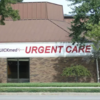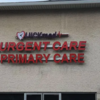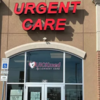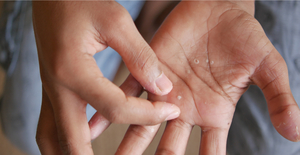Find Hepatitis test
in Lyndhurst, OH.
Own a clinic? Add your location.
Help patients book appointments with you on Solv. It's free!
17 instant-book locations

QUICKmed Urgent Care, Garfield Heights
QUICKmed Urgent Care

Health Express Urgent Care, Cleveland
Health Express Urgent Care

AFC Urgent Care, Mentor
AFC Urgent Care

Health Express Urgent Care, Middleburg Heights
Health Express Urgent Care

QUICKmed Urgent Care, Strongsville Urgent Care
QUICKmed Urgent Care

Health Express Urgent Care, North Olmsted
Health Express Urgent Care

QUICKmed Urgent Care, Ravenna Urgent Care
QUICKmed Urgent Care

QUICKmed Urgent Care, Medina Urgent Care
QUICKmed Urgent Care

QUICKmed Urgent Care, Akron Urgent Care
QUICKmed Urgent Care

Quest Diagnostics
Quest Diagnostics
Self-pay pricing
Clear self-pay prices
No more surprise bills. Solv is committed to making getting healthcare as easy as buying groceries at the store, including knowing the price of care upfront.

Quest Diagnostics
Quest Diagnostics
Self-pay pricing
Clear self-pay prices
No more surprise bills. Solv is committed to making getting healthcare as easy as buying groceries at the store, including knowing the price of care upfront.

Quest Diagnostics
Quest Diagnostics
Self-pay pricing
Clear self-pay prices
No more surprise bills. Solv is committed to making getting healthcare as easy as buying groceries at the store, including knowing the price of care upfront.

Quest Diagnostics
Quest Diagnostics
Self-pay pricing
Clear self-pay prices
No more surprise bills. Solv is committed to making getting healthcare as easy as buying groceries at the store, including knowing the price of care upfront.

Quest Diagnostics
Quest Diagnostics
Self-pay pricing
Clear self-pay prices
No more surprise bills. Solv is committed to making getting healthcare as easy as buying groceries at the store, including knowing the price of care upfront.

Quest Diagnostics
Quest Diagnostics
Self-pay pricing
Clear self-pay prices
No more surprise bills. Solv is committed to making getting healthcare as easy as buying groceries at the store, including knowing the price of care upfront.

Quest Diagnostics
Quest Diagnostics
Self-pay pricing
Clear self-pay prices
No more surprise bills. Solv is committed to making getting healthcare as easy as buying groceries at the store, including knowing the price of care upfront.

Quest Diagnostics
Quest Diagnostics
Self-pay pricing
Clear self-pay prices
No more surprise bills. Solv is committed to making getting healthcare as easy as buying groceries at the store, including knowing the price of care upfront.
Lake Urgent Care Centers
Lake Urgent Care Centers

Concentra Urgent Care, Willoughby
Concentra Urgent Care
MedSource One
MedSource One
Own a clinic? Add your location.
Help patients book appointments with you on Solv. It's free!
About Hepatitis test
Who should get tested for hepatitis?
According to the CDC, anyone who has been exposed to blood, body fluids, or needles that may have been contaminated with the hepatitis virus should get tested. This includes people who have shared needles or other drug paraphernalia, healthcare workers, people who have had unprotected sex with someone who has hepatitis, and people who have traveled to countries where hepatitis is common. Additionally, people born between 1945 and 1965 should also be tested, as this age group has a higher prevalence of hepatitis C.
Importance of getting tested
Getting tested for hepatitis is crucial because it allows for early detection and treatment, which can prevent serious liver damage and complications such as cirrhosis or liver cancer. Additionally, knowing your hepatitis status can help prevent the spread of the virus to others. According to the CDC, many people with hepatitis do not know they have it until they experience symptoms, which can take decades to appear. Therefore, regular testing is recommended for those at risk.
Hepatitis testing options in Lyndhurst, OH:
Urgent care and walk-in clinics
Urgent care centers such as Quickmed Urgent Care in nearby Strongsville, Akron, and Ravenna offer hepatitis testing. These centers are a convenient option for those who need immediate testing, with same-day and next-day appointments available through Solv's website and mobile app.
Primary care providers
Primary care providers in Lyndhurst and surrounding areas also offer hepatitis testing. Regular check-ups with your primary care provider can include routine screenings for hepatitis, especially if you fall into one of the high-risk groups.
Free STD testing and community health centers
Community health centers in Cuyahoga County offer free or low-cost hepatitis testing for those who qualify. These centers are an important resource for those without insurance or those who cannot afford the cost of testing.
At-home testing
At-home testing kits for hepatitis are also available. These kits can be ordered online and used in the privacy of your own home, with results usually available within a few days.
Prevalence of hepatitis in Lyndhurst
While specific data for Lyndhurst is not readily available, Cuyahoga County, where Lyndhurst is located, has seen a steady increase in hepatitis cases over the past few years. This trend mirrors national data, which shows an increase in hepatitis cases across the United States. It's important to note that these numbers may be underreported, as many people with hepatitis do not know they have it.
Risk factors related to hepatitis in Lyndhurst
Risk factors for hepatitis in Lyndhurst are similar to those in other parts of the country. These include drug use, unprotected sex, and exposure to contaminated blood or needles. Additionally, people who have traveled to countries where hepatitis is common are at increased risk.
Other STDs in Lyndhurst
In addition to hepatitis, other STDs such as gonorrhea, chlamydia, HIV, and syphilis are also prevalent in Lyndhurst and surrounding areas. Regular testing for all STDs is recommended for those at risk.
Solv has strict sourcing guidelines and relies on peer-reviewed studies, academic research institutions, and medical associations. We avoid using tertiary references.
Related Searches
DOT Exam in Lyndhurst
Ear Wax Removal in Lyndhurst
Sports Physicals in Lyndhurst
A1C Test in Lyndhurst
Allergy Testing in Lyndhurst
Basic Metabolic Panel in Lyndhurst
CMP Test in Lyndhurst
Diabetes Test in Lyndhurst
Diagnostic Test in Lyndhurst
H Pylori Test in Lyndhurst
Hepatitis test in Lyndhurst
Lab Tests in Lyndhurst
Mono Test in Lyndhurst
Pregnancy Test in Lyndhurst
Pulmonary Function Test in Lyndhurst
RSV Test in Lyndhurst
STD Testing in Lyndhurst
Strep Test in Lyndhurst
TB Test in Lyndhurst
Thyroid Test in Lyndhurst
Vitamin D Test in Lyndhurst
Aetna Urgent Care
Blue Cross Blue Shield Urgent Care
Cigna Urgent Care
COVID-19
Flu
United Health Urgent Care
» All services in LyndhurstFind hepatitis test
Nearby cities
Everyday Healthcare, Simplified
Expert advice to help you live your best life







